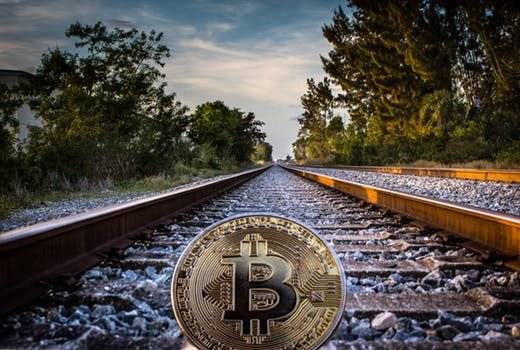Inflation (💵 Fiat) 𝐕𝐒. Deflation (₿itcoin)
Inflation (Fiat 💵 )
We’re all accustomed to an economic system governed by inflation. Since birth, the cost of living has been on the rise but so has the amount of money in circulation. The markets experience a rise in prices even when there’s also a rise of money in circulation because of the supply and demand phenomenon. Prices continue to rise because the supply of goods and services remains steady in relation to the increase of the money supply.

Why the supply of goods and services fail to rise along with the supply of money is a study for economic students. If I were to guess, I would say money is being printed at an alarming rate that it is impossible for supply to keep up. Another reason I guess would be that most of the new money supply gets distributed to the top 10% whilst the rest of the 90% represents most of a nation's demand.
Inflation has been around for so long that many economists argue that it is the better of the two systems. The markets have also learned how to adapt and make sense of where the current supply of money stand. When there’s more money out there it’s only a matter of time before the markets realize it and capitalize through price increases.
Now, most of successful businesses are in favor of inflation because they keep competitors away by raising prices and not leaving much capital out there to entice new businesses into coming in. It is also in the Reserve Bank’s best interest to implement inflation because if more people enter the business world, it creates more sellers than buyers. Clearly, if there’s more supply than there is demand, then the Reserve Bank would lose its power.
An inflationary system is almost the perfect scheme in that most of the problems that arise in the economy are solved or postponed by printing more money almost in perpetuity. Last I checked the USA had a debt of 21 Trillion and that is rising every second. What’s stopping them from printing that amount and paying the debt?
This system clearly benefits debtors because more money will be printed tomorrow for you to get your hands on. Don’t rush to get into debt though because loan rates may be high for you to pay back. Those who greatly benefit is the top 10% because they’re provided much lower rates than the rest of us and can easily repay those loans after making some investments.
One fact I find funny in regards to banks is that they will never loan you money if you don’t have any but will persistently encourage you to take a loan when you have money and don’t need it. They will pursue you and entice you with offers that are too good to pass by. It’s kind of the same mentality adopted by casinos – when you’re rich they’ll provide you with free accommodation, exclusive event tickets, and other excursions just to get you playing in their casino.
Inflation has become synonymous with Capitalism that it’s hard to imagine one working without the other. If the last sentence is true, then does it mean that deflation is by default a cousin of Socialism?
Deflation (₿itcoin)
It is characterized by a decline in prices either as a result of a reduction in money supply or less consumer spending (demand). I don’t remember the last time I saw a decline in the price of products across the board except when there’s a short promotional sale for certain products, but generally, the price always rises.

In fact, one of the only sectors that consistently shows a decline in prices is the technology sector. Radio’s, tv’s, computer’s, smartphones, etc. continue to decrease in price as new technology emerges. But in this instance, it makes sense for older models to decline in price along with demand for current devices because demand is redirected to newer and better models.
The resulting effects of a deflationary economic system are mostly negative in my opinion. Let’s imagine there’s a reduction in money supply or demand. Yes, goods and services would be cheaper but there still would be about the same number of people who afford them. A deflationary system would reward those who save their money instead of spending it thus creating even less demand and a further decline in prices.
Also taking into account that paper money (fiat), can easily get destroyed or lost which further limits the money supply. How long would it be before more money needs to be printed out just to keep things stabilized? Once a resource is that scarce and valuable it brings rise to many criminal acts to steal your money.
Another negative thing about deflation is that it destroys many businesses because there’s a low demand compared to a high supply. This could easily lead to a monopoly on the markets with only one or very few companies controlling the supply and prices of products and services.
The allure of being an entrepreneur wouldn’t exist in this kind of environment. No matter how hard you worked you’d basically be stuck in the middle class along with the majority of people. They’d be no such thing as “The American Dream”.
I can see how deflation could lead to a socialist system where much of the country’s production and distribution of goods and services are owned by the public and not the state. This means the profits of the country are shared equally amongst its citizens.
Bitcoin is a deflationary money system because its supply will never be more than 21 million and that will continue to decline due to natural outcomes such as loss or death of bitcoin holders. As stated in previous paragraphs this is a losing proposition but because there are other digital currencies coexisting with it, then it becomes a great store of value.
Its characteristics will reward those who save it for the long term especially considering it’s not bound in a single country but available to all 7+ billion people on Earth. Unlike with banks where only 1.2 billion people have access to a bank account, there are roughly 3 times more people with access to the internet thus access to Bitcoin and other cryptocurrencies.
Which economic system do you think is the best one for worldwide use in the long term, especially in a world that's becoming more and more technological by the day?
Do you have any thoughts or opinions you'd like to share? Please share them in the comments section below and if you'd like me to notify you when a new post is up, type "notify" in the comments and I'll let you know as soon as it is posted.

I always strive to create value for my followers and to the community whether it's Finance, Life, Business, or just valuable knowledge. Please subscribe to receive such content and upvote if this was of value to you.
Until the next one, have a great day!
Twitter: @EarnOnlineWith_
Telegram: @EarnOnlineWith_
Youtube: Coming soon!



This is an advertised post
The author of this post or one of his supporters has used one or more paid services to promote this post. This post's valuation and number of upvotes does not represent human curation. This means this post's valuation does not represent community appreciation and should be viewed as advertised content.
If you are new to these services please be warned that bid voting is a huge gamble with little return on investment if not utilized right and might also lead to a net loss.
If you like this service please update this comment for visibility and to support paying for the server costs.